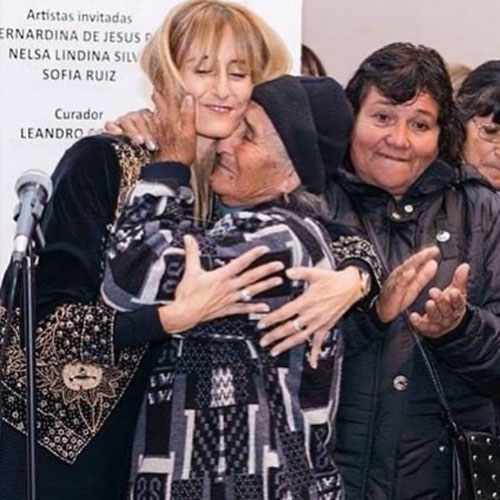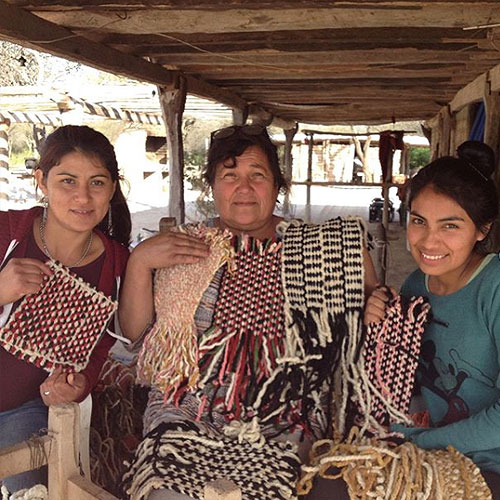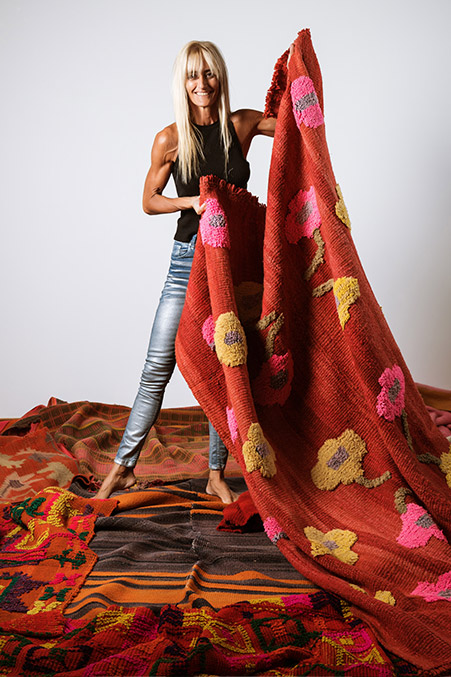MANTARA: OUR PASSION
Our project involves fair trade and circular design values. Our pieces revalorize the know-how and the ancestral techniques which the artisans from Santiago del Estero weave in each thread.
We string stories together, sew present and future focusing on taking care of the environment. Our rugs sum up the work of a community which feels respected, valued and integrated to the process of circular economy.
We believe in the creative spirit of design, in the textile which we create alongside the artisans and in the design which we develop and take to the whole country.
We respect our surroundings, the land and Nature in pursuit of achieving a balance where the environment is the protagonist of a new era; that’s why the output of the process is first class raw material.
From the very heart of Santiago del Estero begins a productive process, which involves the artisan Bernardina de Jesús Paz Silva, one of the pioneers of the entrepreneurship. The artisan who interpreted with her hands each design proposal passed away in June of 2020 and left an indelible mark on all of us.
In order to name the rugs, I choose words in Quechua, the family of native languages of the Peruvian Andes, which poured its power into South America. Munay (love, beauty, freedom), Yuraq (white, purity, peace) are some of the concepts embodied in this socially responsible entrepreneurship, which generates genuine work forces and promotes the values of the triple impact: economic, social and environmental.
With the Earth terribly threatened and with more doubts than certainties, this is a moment to reorganize and value collaborative formats. The transformation is powered from the purity of the material and the quality of the natural textiles. We do not use dyes neither chemical processes to alter the raw material.
We have the tools and the knowledge to string our own story together.


Carolina Pavetto
Designer and owner of Mantara

At the head of Mantara is Carolina Pavetto, designer and entrepreneur, meticulous and generous. Her honest bond with the community of weavers allows her to deeply understand the context in which they live and promote initiatives to transform their reality.
“Mantara is my life, my passion. I have daily conversations with the families. Not only do we interchange ideas of designs, dyes and sizes of rugs, but I am also aware of the social problems; such as lack of water or electricity. I absolutely respect their time; I try to contribute to improving their quality of life.”



